"Although everyone is discussing that the film industry is in a trough, we think this is also the beginning of a new cycle."
Every reporter | Wen Menghua Li Jianing every editor | Dong Xingsheng
"Since the second half of 2018, the attitude of capital towards the film and television industry has undergone a major change, and the original phenomenon of large-scale financing no longer exists." On the afternoon of June 11th, Wang Changtian, Chairman of Light Media, spoke frankly at the 4th China Film Capital Summit, which was jointly sponsored by Shanghai Film Co., Ltd. and national business daily.
Wang Changtian is not alone in this feeling. In the round-table forum with the theme of "New Convergence and New Path of China Film Investment", talking about the change of capital’s attitude towards the film industry, Jiang Defu, CEO of Bona Film Group, Zeng Maojun, President of Wanda Film and Television, and Wang Zhonglei, CEO of Huayi Brothers collectively spoke out and complained that the film and television industry was short of money.
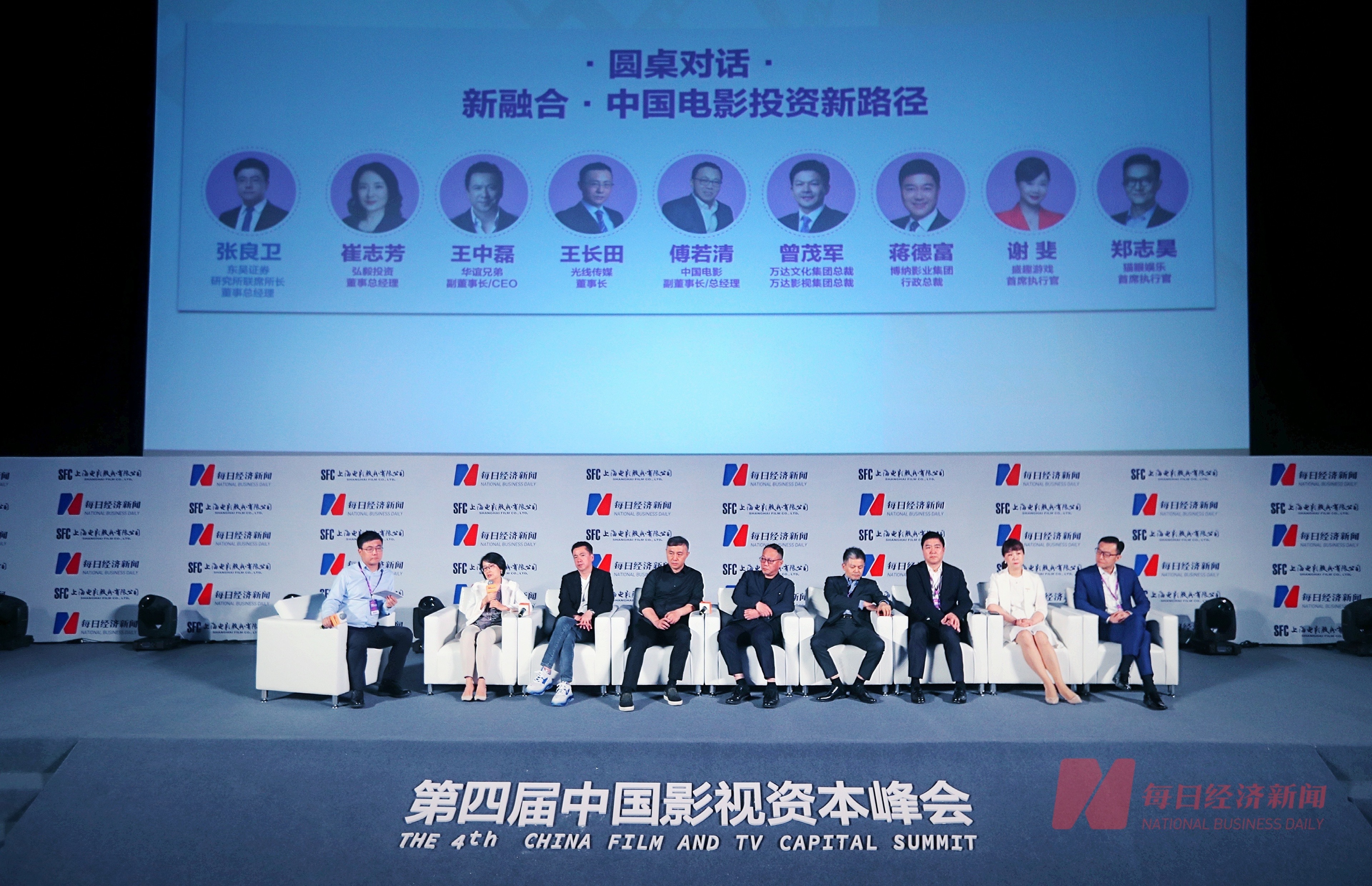
Roundtable dialogue site
Change is inevitable. For the whole film industry, after the industry adjustment and epidemic impact, with the departure of some speculative capital and the extension of the film market value chain, the worst moment has passed. What seems to be behind the trough is actually the beginning of a new cycle in the industry.
When Fu Ruoqing, Zeng Maojun, Wang Zhonglei, Wang Changtian, Jiang Defu, Zheng Zhihao, Xie Fei, Cui Zhifang and other film and game companies who have witnessed the development of the industry sit around, rethink the relationship between film and capital, and explore the future reform direction of film companies under the capital transformation, the development of China’s film is entering a new stage of rapid and high-quality development.
"The profit-seeking capital has withdrawn from the film and television industry and is no longer supported, which makes the film and television company very sad now. I like it but dare not love it." At the summit, Jiang Defu, CEO of Bona Film Group, spoke frankly about the attitude of capital towards the film industry.

Jiang Defu
Once upon a time, the film and television industry was a hot spot for capital. Whether it is a real estate tycoon or an internet upstart, they all want to share a piece of the film and television industry. However, the wind comes and goes quickly. After a series of industry adjustments and epidemic shocks, the tide recedes, the capital is far away, and the market fluctuates, which has frequently become a topic of discussion in the industry.
It has long been an indisputable fact in this circle that the industry is short of money and the company is complaining, and a group of film and television company bosses who are in it have a deep understanding.
"Since the second half of 2018, capital investment in the whole industry has decreased sharply. I think the capital market has basically adopted a blockade policy for the film and television industry. " Wang Changtian, chairman of Light Media, said. In his view, there are no new companies listed in the film and television industry in the past two years, and there is no way to raise funds, which directly makes the backbone enterprises in the film and television industry have financial difficulties.
Huayi Brothers, which took the lead in landing on the Growth Enterprise Market in 2009 and became the "first stock of film and television entertainment in China", experienced the capital ups and downs of the whole industry. Wang Zhonglei, vice chairman and CEO of Huayi Brothers, said frankly: "Capital investment in film and television has always existed. Looking back now, it was actually a capital peak seven or eight years ago. At that time, a lot of capital poured in, which was not understood by this industry, and it was more a profit orientation. "
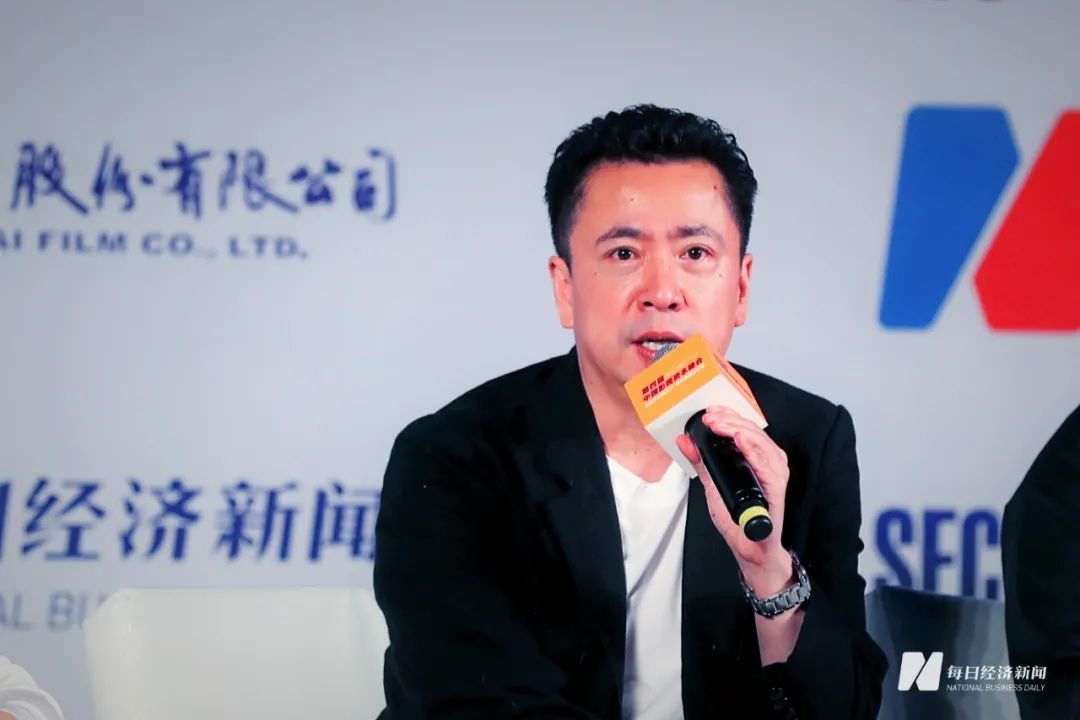
Wang Zhonglei
"Profit-seeking capital" also impressed Jiang Defu, CEO of Bona Film Group.
"For a while, the film industry was very hot, and capital poured into the cultural market; But when the industry is calm and difficult, capital can’t be found. " Jiang Defu said, "When there are many big projects, you really need the support of capital, but just like ’ Investment needs to be cautious ’ In that sentence, what the capital market wants is to harvest profits. At this time, we feel that we can’t get along with capital. The film industry needs support, but after the capital comes in, it needs more than 10% return to cooperate, so it is very difficult for film companies. I like you, but I dare not love you. "
With the influx of hot money, the industry seems to be very lively, but when the "cold winter" comes and the capital suddenly leaves, many problems brought about by the profit-seeking nature of capital begin to emerge one by one.
The most obvious is the sharp decline in the valuation of film and television companies. Wang Zhonglei pointed out that at present, the market value of so many film and television listed companies add up, which may not be the tip of the iceberg of the valuation of an Internet company. The valuation of all film and television listed companies has reached a lowest point and will definitely rebound in the future.
In addition to the market value, Zeng Maojun, president of Wanda Film and Television, also noticed other problems in the industry behind the profit-seeking nature of capital, such as the high cost of actors, the emergence of a large number of shoddy content, the serious shortage of creative staff, and the profit decline of the film and television industry driven by rapid capital. Wang Changtian also said that there is a very serious "triangle debt" phenomenon in the industry: the cinema owes money to the issuing company, the issuing company owes money to the production company, and the production companies owe money to each other and the founders.
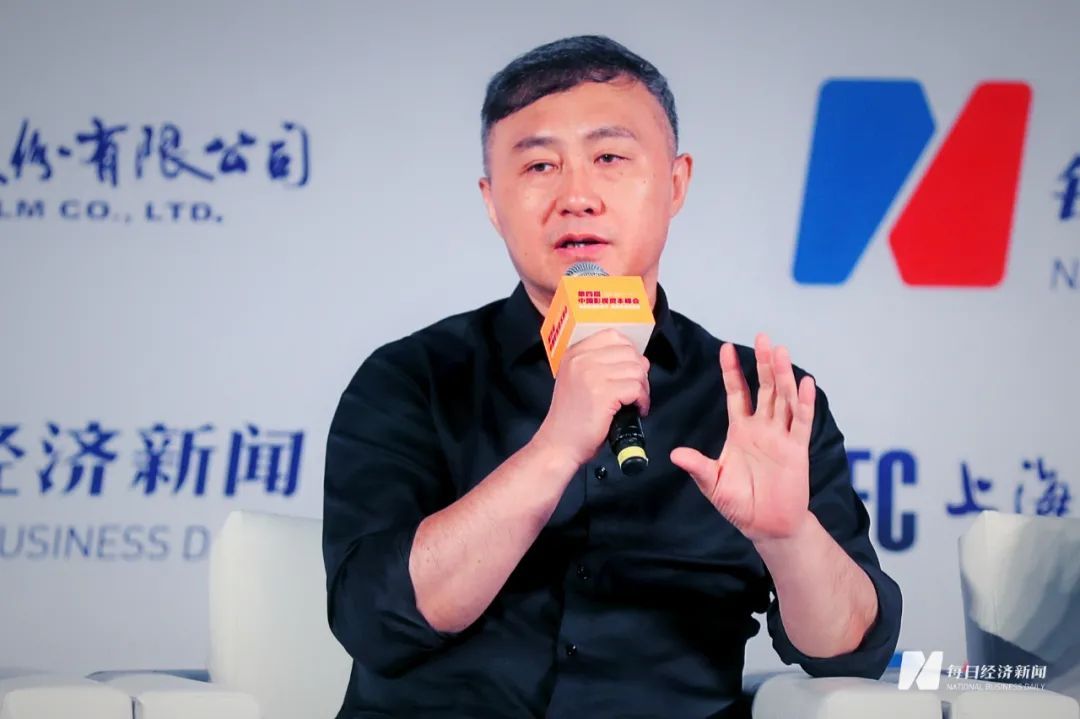
Wang Changtian
"After there is no rapid growth in the industry, capital will return to rationality. I think at this stage, it is not a bad thing for the whole industry to be optimistic about capital online and some speculative capital leaving for a long time. With the bursting of the bubble, this market finally precipitated a group of companies with advantages in content production and industrial chain development. " Zeng Maojun stressed.
Capital is destined to love and kill the film and television industry. As Zeng Maojun said: "The film must not be driven by capital, but when the film market grows rapidly, it must have the property of capital."
In his view, after more than two years of content precipitation, global films are about to explode, and the film market will usher in a new year in 2022. Then, with the film consumption threshold being raised and the value chain being lengthened, where is the next investment direction of the industry?
"Although everyone is discussing that the film industry is in a trough now, we think this is also the beginning of a new cycle." Cui Zhifang, managing director of Hony Capital, who has been investing in the cultural industry for 13 years, believes that it is the era of change and there are many investment opportunities and new trends.
Cui Zhifang believes that in the China market, the threshold resources are IP and copyright, and this part will definitely break out in the future. Only companies that really own IP and copyright libraries will have sustainable development value. Secondly, technology-driven is also a good investment opportunity. "Driven by new technologies, it is a change in energy saving and efficiency improvement for the entire film and television industry and even the big cultural industry."
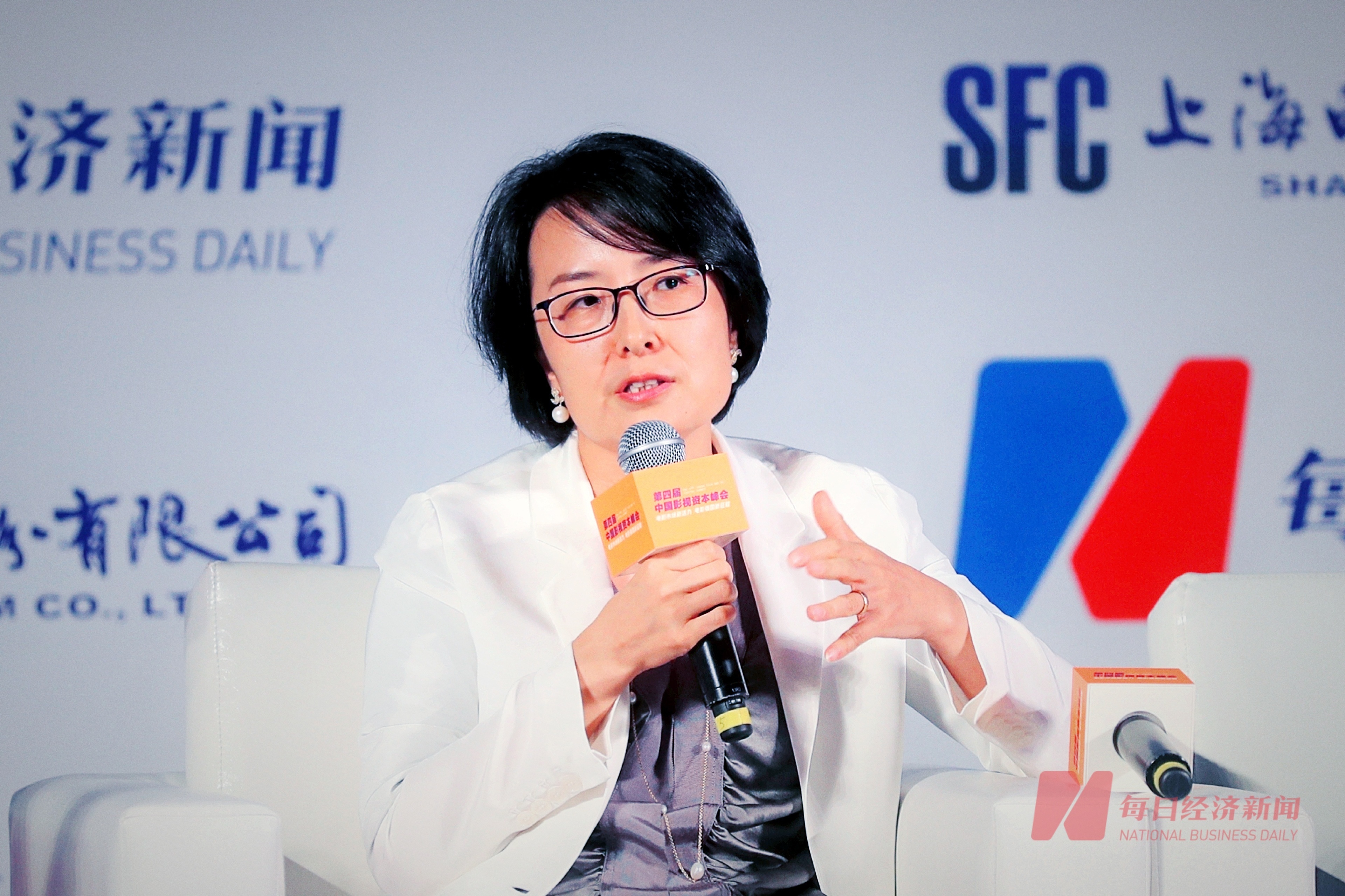
Cui zhifang
It is not the first time that technology has brought revolutionary influence to the film industry. Fu Ruoqing, vice chairman and general manager of China Film, pointed out that 2010 was a period of comprehensive digitalization of China films, with the production cost of the industry dropping sharply and the number of screens increasing substantially. At that time, a lot of funds poured into the industry, but the capital was still most concerned about the head company and the head content.
This inspired Fu Ruoqing to think about the relationship between film and capital from a broader perspective. "In the future, in addition to paying attention to the head of the industry, the film and capital market should look at other attributes of the film more broadly, such as the artistic attributes and technical attributes of the film, and the industrialization driven by China films. There is great room for growth in the future, and future investments can be more diversified."
Wang Zhonglei, who is deeply aware of the change in the attitude of capital in the past two years, thinks that the first thing to do is to change the thinking and cognition: "Before, maybe everyone thought more simply about capital, and the understanding was to give money. But in fact, capital also has a great role, that is, taking the company as the foundation and highly integrating the industrial chain. "
"Capital’s support for cultural industries should not only be in one channel, but should be integrated through multiple channels. In addition to simply increasing shares or increasing film investment, capital can participate more in the relevant links of the industrial chain. The whole film industry is actually a gold mine. In addition to the box office, there are many more profitable spaces that can be jointly developed. " Jiang Defu also stressed.
If we broaden our horizons, the game track highly sought after by capital in 2020 may also provide some thoughts for the future capital road of the film industry.
According to Xie Fei, CEO of Shengqu Games, although there are obvious differences between the game industry and the film industry, the two industries have investment commonalities. "Games and movies are both content creative industries, and the four words that are said the most are ‘ The content is Wang ’ . Therefore, both industries will attach great importance to the team ability in the investment process, that is, the research and development ability of innovative products. "

Xie Fei
After experiencing the most difficult moment of the epidemic industry, the development of China films is entering a new stage of rapid and high-quality development. A group of filmmakers are full of confidence in the future of the industry and their pace has never stopped.
Zheng Zhihao, CEO of Maoyan Entertainment, believes that it is a trend for capital to pursue high growth, and there will be more opportunities behind capital rationality. "Instead of complaining about capital, we should settle down and build long-term value, and make our industry’s plates and cakes bigger step by step. Whether it is a publicity or a business model, when the industry continues to explode its long-term value, talents will come back and capital will return to our industry."

Peter
In terms of capital’s attitude towards the film and television industry, the guests expressed their opinions and shared their unique opinions. At the same time, they also reached a consensus that doing a good job in content is the constant core of the film and television industry.
How to strive for perfection in content creation and create more explosive works in the future? Where are the future reform directions of film companies under the capital transformation? Each company has its own "unique skills", and each head also has his own experience.
"The animation production cycle is very long. It takes at least four to six years to make an animated film, and it may not guarantee the best quality." Facing the expectation of the outside world, Wang Changtian, the chairman of Light Media, said frankly that we need to pour some cold water on everyone. "Looking at animated films in the whole film market, animated films account for only a little more than 10% of the box office, and even in the best years, they can only reach 20%."
However, he also said that for the future production of domestic animated films, the light has already had a preliminary plan. "We will reorganize China’s myth system, and it will take 20 years or even longer to create the China myth film universe." Wang Changtian said that he hopes that in the future, Light will launch three or four animated films every year, and he also hopes that the society will wait more for Light and the animated film industry.
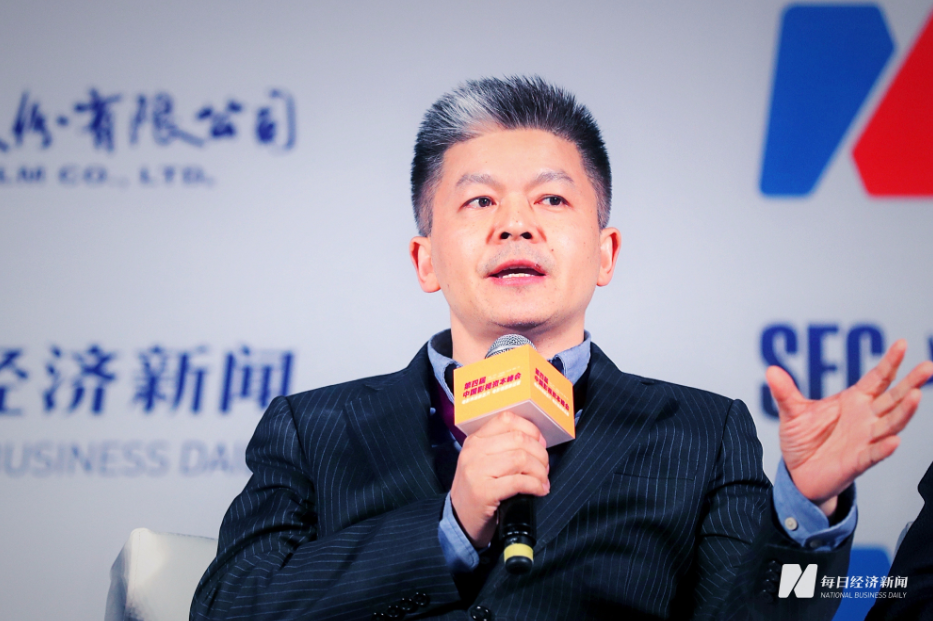
Zeng maojun
"Differentiated positioning is very important." Cui Zhifang, managing director of Hony Capital, believes that the future scene of China film market will be to build a top IP in three or four years, and continue to develop its derivatives. "There is a need for enterprises to develop downstream derivatives and go to science and technology. This is the company that capital expects to develop more investment opportunities from different genes."
"In recent years, we have encountered some capital problems, which have a sluggish effect on our overall development, but we want to stick to it." In Wang Zhonglei’s view, as one of the earliest film and television companies that laid out the whole industrial chain, Huayi Brothers experienced the transformation from heavy assets to light assets and then to IP, and also explored a path. "When we are making a theme park, capital can make equity investment or upfront investment, and under the impetus of capital, many excellent domestic companies and international companies in the entire film industry will be connected for cooperative development."
Jiang Defu, on the other hand, has a lot of experience in the production of theme films. From The Captain’s "Fire Hero" to The Battle at Lake Changjin, Bona has explored some experiences in the commercial operation of theme films. "It is not difficult to shoot the main melody film, but how to attract the audience into the cinema and add commercial information needs further exploration." Jiang Defu pointed out that it won’t hurt to shoot the main theme, but the key lies in how to make the audience moved, shed tears and have passion. In the next step, Bona Film will continue its efforts in creation and hope to open a new channel of cooperation.
At the summit, Zeng Maojun also said: Now major film companies are holding a group to keep warm, and WANDA CINEMAS hopes to be a company that achieves a balance in content and cinema. Zeng Maojun revealed that there are two development directions for WANDA CINEMAS in the future. The first is the diversification of content and the second is the diversification of investment volume. "We will reduce our dependence on a single content and become a content-driven company."
As an established state-owned film company, China Film Group has the most complete film industry chain. Fu Ruoqing, vice chairman and general manager of China Film, said that integrating resources has always been the core development direction of China Film. In addition to the traditional production, marketing and distribution, cinema and services, China Film proposed this year that the six major sectors will be adjusted and sorted out in the future. "China Film’s thinking is very clear. In some single projects, China Film may not be the first in the industry, but it has obvious advantages in terms of comprehensive and integrated capabilities."

Fu ruoqing
Despite its late entry, Cat’s Eye, which has scientific and technological advantages such as big data, has been increasing its investment in the content field and laying out the whole entertainment industry chain in recent years. "China movies must grasp the content that the audience likes and tell the story of China well." Zheng Zhihao, CEO of Maoyan Entertainment, said that in the future, Cat’s Eye will focus on the construction of all entertainment, all links, all scenes and other capabilities, work with various film and television companies to strengthen the polishing of works, and find audiences who like them for every good work.
Content is king, which is the same in the game industry. Xie Fei, CEO of Shengqu Games, said: "The arrival of the epidemic seems to be more beneficial to the game industry, because everyone is playing games at home. In 2020, the investment in the game industry has been very enthusiastic, but in the first quarter of 2021, the cases of industry investment exceeded the whole year of 2020. "
In addition, Xie Fei also said that there are many aspects that need to be considered in adapting the game with movie IP, such as how much attention the popularity of IP can bring to users, whether the character stories of film and television works are suitable for game adaptation, how interactive the game is, and how the life cycle is. In order to follow the schedule of film and television promotion, the production of game products is often very hasty. "The cooperation between movies and games will be even richer in the future."
Image source: Every reporter Zhang Jianshe (data map)